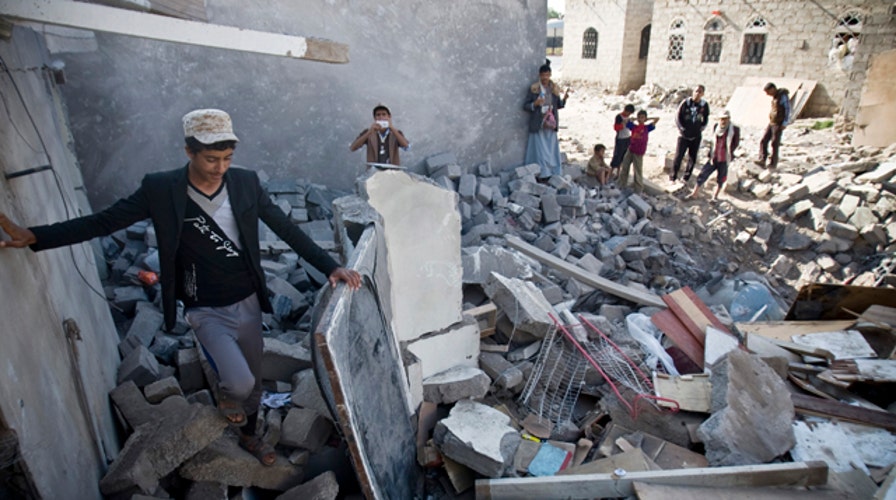Saudi Arabia's big gamble in Yemen
Fred Fleitz and James Phillips on the prospects for a full-scale civil war
Another round of Saudi-led coalition airstrikes against Shiite rebels in Yemen shows Saudi Arabia’s push to take control over the unraveling situation, experts tell FoxNews.com.
Fred Fleitz and James Phillips told FoxNews.com the crisis in Yemen has put the Saudis and their allies on alert.
“The Saudis see a very dangerous situation -- there are the Houthi rebels, who are a Shiite group which may be becoming an Iranian proxy, Al Qaeda in the Arabian Peninsula, the most dangerous Al Qaeda franchise ... there is a question over whether they can get together an Arab coalition willing to send in ground troops,” said Fleitz, senior vice president with the Center for Security Policy.
“We’ve seen a slow motion civil war there for many years and now the pace is accelerating … Yemen is really dissolving into a kaleidoscope of conflicting factions,” said Phillips, senior research fellow for Middle Eastern affairs at the Heritage Foundation.
Foreign policy analysts believe the Saudis will steadily increase their role in Yemen over fears Iran might try to move into the region.
“The Saudis are very concerned -- I think they are going to play a significant role,” said Fleitz. “But I think we need to look at exactly who are the Houthi allied to. There is a belief they are an Iranian proxy, we know the Houthis hate the Saudis … there is a danger the Saudi attack on the Houthis could drive them to the Iranians.”
While Saudi Arabia has led an air campaign, there are indications a ground strategy won’t be effective against the rebels.
“The Yemenis are much better fighters than the Saudis … they know the terrain [and] the Saudis have a relatively weak army so they rather substitute air power in which they a greater advantage against the Houthis,” said Phillips, who sees a reliance on airstrikes as the “primary engine” for Saudi intervention.
There are concerns if the Saudi-led coalition can’t quell violence in Yemen, it could spill over into their borders.
“The Shiite Houthi rebels could enflame instability among the Saudi Shiite minority communities. It’s a big concern,” said Fleitz.

